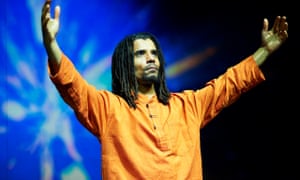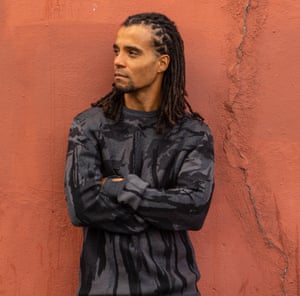Not a British Subject: Race and Poetry in the UK
The Los Angeles Review of Books
2015-12-06
Sandeep Parmar

As long as we have literature as a bulwark against intolerance, and as a force for change, then we have a chance. Europe needs writers to explicate this transition, for literature is plurality in action; it embraces and celebrates a place of no truths, it relishes ambiguity, and it deeply respects the place where everybody has the right to be understood…
— Caryl Phillips, Color Me English
Nature rejects the monarch, not the man;
The subject, not the citizen: for kings
And subjects, mutual foes, forever play
A losing game into each other’s hands,
Whose stakes are vice and misery.
— Percy Bysshe Shelley, “Queen Mab”
WHEN I LEFT LOS ANGELES in the summer after 9/11 to study creative writing in England, I was only supposed to be away for a year at most. England was a country I thought I knew — I was born there, lived there for a few years, and returned to visit my maternal grandparents nearly every summer in my teens. Wanting to study poetry, I enrolled in the University of East Anglia’s MA program. Based in Norwich, the writing MA at UEA boasts Kazuo Ishiguro, Anne Enright, and Ian McEwan — along with a host of lesser known but respectable poets — among its graduates. Compared to Los Angeles, Norwich felt strangely remote, enswathed by lakes and rivers and marshland studded by flint houses. Two hours from London, and a bit further to Derby (where my grandparents immigrated in the 1960s from Punjab) I found myself at the desolate end of a train line, cut off from the multicultural Britain of London and the heavily ghettoized Midlands. Norwich — and UEA — could not have been any less ethnically diverse. Whereas inner-city Derby, in particular the multiethnic Normanton road, felt like an entrenched if deeply divided community of Sikhs, Muslims, West Indians, and others, Norwich was eerily homogenous. When I inquired of a local cab driver about racism in the city, he assured me that it was not a problem because “there aren’t any black people.” This did not prove to be exactly true.
What was I doing there? I should have asked myself. And what kind of poet would I become? I never thought to question my attraction to British poetry, or my unfounded sense of its legitimacy. At 21, I was drawn back to the country of my own and my mother’s childhood for instinctual reasons I would only realize many years later. And so, forsaking sunshine, naively idolizing the English way of life as one giant costume drama, I wasted no time and devotedly read beyond the mere handful of 20th-century British poets I had encountered as an undergraduate at UCLA…
…A recent review of Sarah Howe’s book begins with the publisher’s blurb:
Loop of Jade is described as an exploration “of a dual heritage” — Chinese and British — a “journeying back…in search of her roots.” My heart sank a little. Without diminishing the importance of such endeavours, the intervening three decades of identity politics has also led to, perhaps, a sense of, well, here we go again.
The reviewer misses the point — it is not “identity politics” that is at fault here, but publishers who only stage a poet’s racial identity when that poet is not white. Howe’s book moves between lyric and experimental modes, and dodges the uneasy limits of poetic subjectivity. Her work retains a deeply intellectual authority over itself in an industry that would prefer to ornamentalize poets of color…
Read the entire article here.









